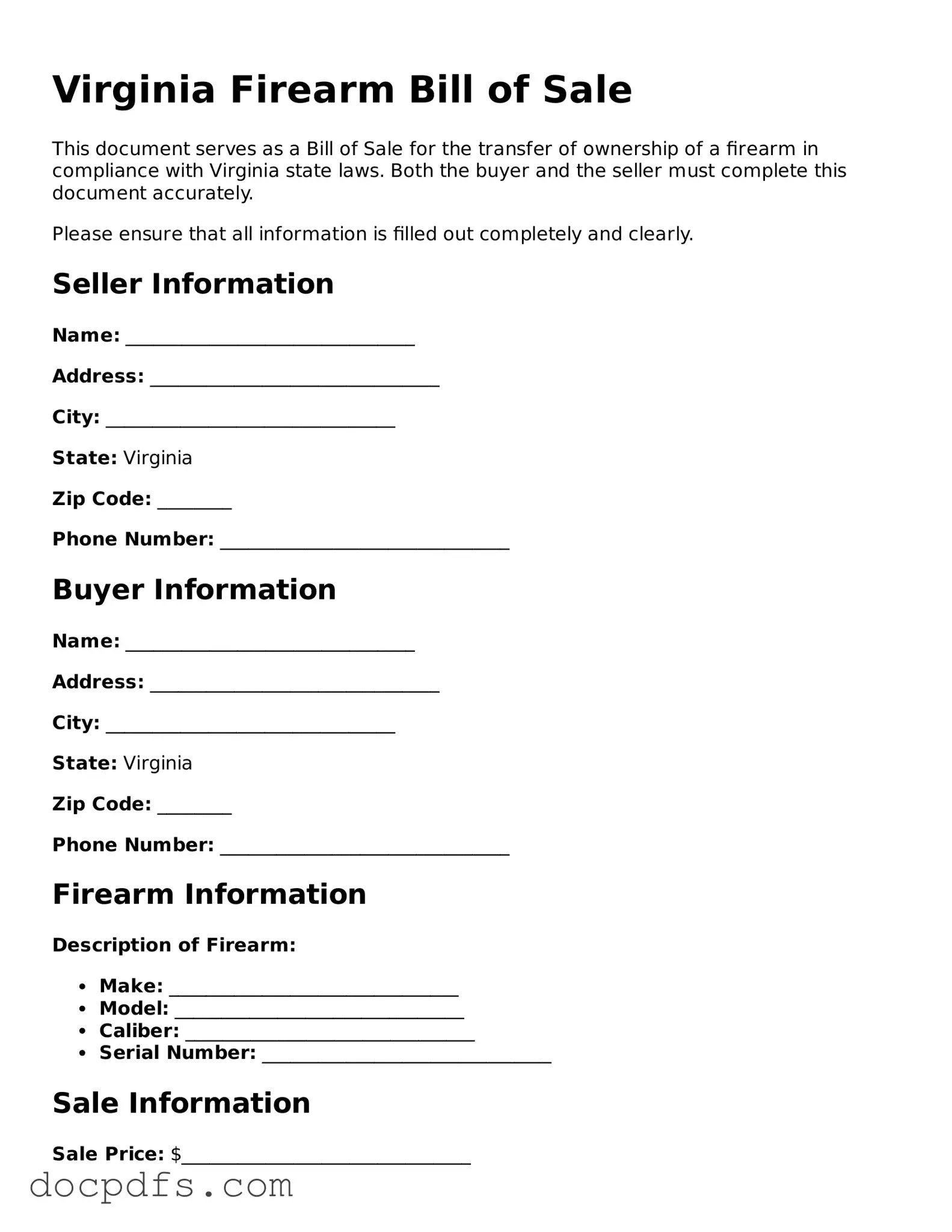Free Virginia Firearm Bill of Sale Form
The Virginia Firearm Bill of Sale form is a legal document used to record the sale or transfer of firearms between individuals in Virginia. This form helps ensure that both the buyer and seller have a clear understanding of the transaction. It serves as proof of ownership and can protect both parties in case of future disputes.
Open Firearm Bill of Sale Editor Now

Free Virginia Firearm Bill of Sale Form
Open Firearm Bill of Sale Editor Now

Open Firearm Bill of Sale Editor Now
or
⇓ Firearm Bill of Sale
Finish this form the fast way
Complete Firearm Bill of Sale online with a smooth editing experience.